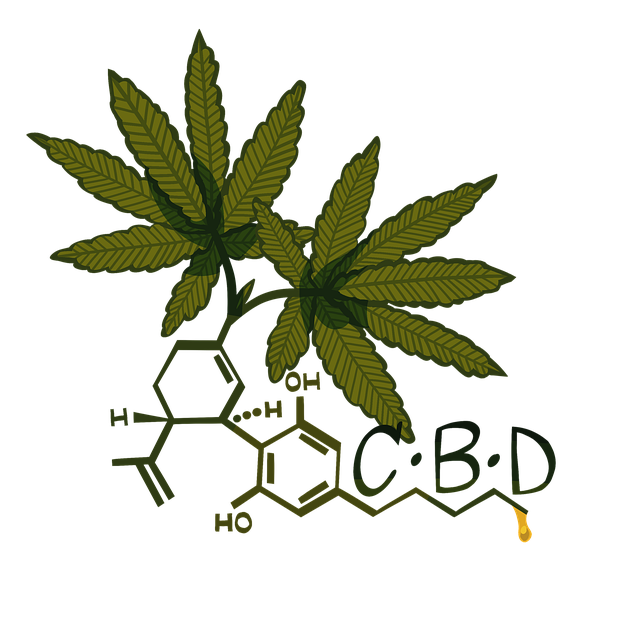As of the current regulatory environment, THCA (tetrahydrocannabinolic acid), a non-psychoactive cannabinoid found in the Cannabis sativa plant and precursor to THC, has a complex legal status in Idaho. While medical marijuana remains restricted, hemp-derived products containing less than 0.3% THCA are legally permissible under specific conditions due to federal legislation like the 2018 Farm Bill. Idaho's stance allows for the cultivation, sale, and use of such THCA products, provided they adhere to regulatory thresholds. However, this legal clarity comes amidst a broader state and national dialogue on cannabinoids, with ongoing scientific research into THCA's potential health benefits, including its anti-inflammatory, neuroprotective, and analgesic properties, which may offer therapeutic options for various health issues without psychoactive effects. Consumers in Idaho interested in THCA products must navigate this evolving legal landscape carefully and procure them from reliable sources to ensure compliance with both state and federal regulations.
Exploring the multifaceted relationship between THCA flower and its implications within Idaho’s evolving legal framework, this article unravels the science behind this non-psychoactive cannabinoid. As THCA gains traction for its potential wellness benefits, it’s imperative for users to be well-informed about its side effects. We delve into the cognitive and physical responses linked to THCA consumption, offering guidance on safe dosing and highlighting the importance of quality control in product safety and efficacy. With a focus on user experiences and interactions with other substances, this piece also provides best practices for navigating THCA’s effects responsibly. As THCA becomes increasingly legal in Idaho, understanding its nuances, especially in comparison to THC and other cannabinoids, is key for consumers and regulators alike. This article aims to address these aspects comprehensively, ensuring readers are fully equipped with the knowledge they need to make informed decisions about THCA flower use.
- THCA Flower and Its Emergence in the Legal Landscape of Idaho
- Understanding THCA: The Non-Psychoactive Cannabinoid Gaining Attention
- The Scientific Breakdown of THCA and Its Potential Benefits
- Legal Status of THCA Flower in Idaho: A Closer Look
- Navigating the Nuances: THCA vs. THC and Other Cannabinoids
THCA Flower and Its Emergence in the Legal Landscape of Idaho
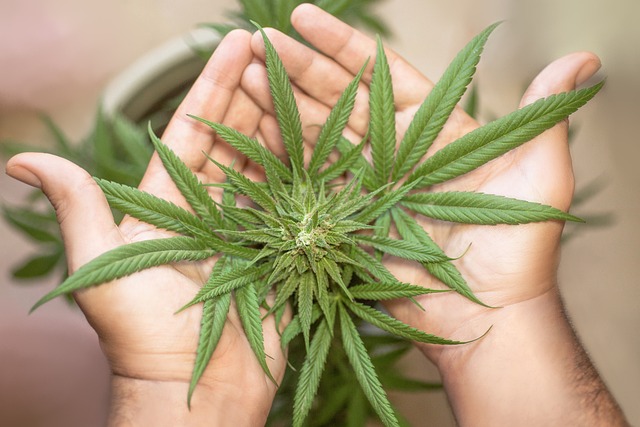
The non-psychoactive compound tetrahydrocannabinolic acid (THCA) has garnered attention within the evolving legal landscape of cannabis products, including its recent emergence in Idaho. THCA is found in raw cannabis flowers and possesses potential therapeutic benefits without the psychoactive effects associated with its counterpart, THC. With the evolving regulations surrounding cannabis products, consumers and healthcare providers are increasingly exploring the various compounds within the plant for their wellness and health applications. In Idaho, a state traditionally conservative in its approach to cannabis legislation, recent legal reforms have paved the way for the cultivation and sale of hemp-derived products, including THCA flower, provided they contain less than 0.3% THC on a dry weight basis. This shift reflects a broader national trend towards recognizing the distinctions between different cannabinoids and their individual uses and effects. As such, THCA legal in Idaho has become a topic of growing interest, with local markets beginning to offer these products to consumers looking for alternatives to traditional cannabis or other wellness solutions. The introduction of THCA flower into Idaho’s legal market represents a significant step forward in the state’s approach to cannabis-related products, signaling an openness to the potential health benefits and economic opportunities that come with this burgeoning industry.
Understanding THCA: The Non-Psychoactive Cannabinoid Gaining Attention
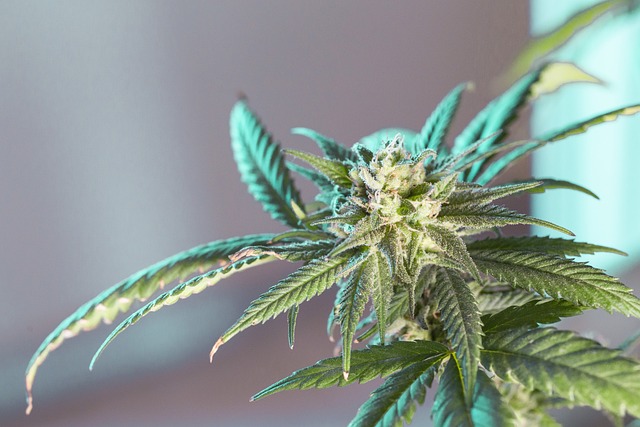
THCA, or tetrahydrocannabinolic acid, is a cannabinoid found naturally in the Cannabis sativa plant and has been gaining significant attention within both scientific research and therapeutic communities. Unlike its well-known counterpart, THC, THCA is non-psychoactive, meaning it does not induce the ‘high’ associated with cannabis consumption. This distinction makes THCA an object of interest for those seeking the potential health benefits of cannabinoids without the psychoactive effects. As of the current understanding, THCA legal status varies across different states in the United States, including Idaho. In Idaho, the legal landscape is evolving, with legislation that allows for certain forms of medical cannabis use under specific conditions. The attention surrounding THCA in Idaho reflects a broader national conversation about the therapeutic properties of cannabinoids and the need for clear regulations to guide their use safely and effectively.
Researchers have identified several potential health benefits of THCA, which include anti-inflammatory, neuroprotective, and antiemetic properties. These findings suggest that THCA could be beneficial in treating a range of conditions, from neurodegenerative diseases to nausea associated with chemotherapy. As the legal status of THCA continues to evolve within states like Idaho, it is crucial for individuals interested in its potential benefits to stay informed about the changing laws and scientific research that supports its therapeutic value. The growing body of evidence supporting THCA’s health benefits underscores the importance of continued study and the development of clear regulatory frameworks to ensure safe access to this promising cannabinoid.
The Scientific Breakdown of THCA and Its Potential Benefits

Delta-9-tetrahydrocannabinolic acid (THCA) is the non-psychoactive precursor to the well-known compound delta-9-tetrahydrocannabinol (THC), found in the Cannabis sativa plant. Scientifically, THCA primarily interacts with the endocannabinoid system through its receptors CB1 and CB2, offering potential therapeutic benefits without the psychoactive effects typically associated with its decarboxylated form, THC. Studies have suggested that THCA may possess anti-inflammatory, anti-nausea, anti-emetic, and analgesic properties, making it a subject of interest for various health applications. In this context, the legal status of THCA products is a significant factor for consumers. As of the knowledge cutoff date, THCA flower is considered legal in Idaho under certain conditions. The 2018 Farm Bill legalized hemp-derived products, including CBD and other cannabinoids, provided they contain less than 0.3% delta-9-THC by dry weight. This legislative development has paved the way for the cultivation, sale, and use of THCA flower in Idaho, as long as it adheres to these regulatory thresholds. Consumers interested in the potential health benefits of THCA should ensure they are sourcing products from reputable suppliers that comply with state and federal laws. The ongoing research into THCA’s effects continues to unveil its potential role in various wellness routines, offering a promising avenue for natural health support.
Legal Status of THCA Flower in Idaho: A Closer Look
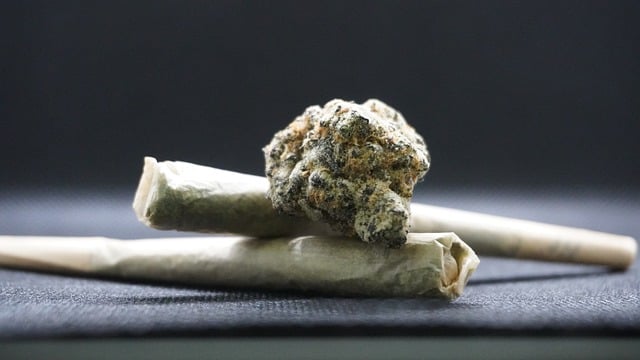
THCA, or tetrahydrocannabinolic acid, is a non-psychoactive compound found in the cannabis plant that is often converted into THC through heat or light. As of recent updates to state laws, the legal status of THCA-rich hemp products, including the THCA flower, in Idaho has been subject to scrutiny and interpretation. While Idaho statutes have historically been stringent against cannabis-related substances, a 2019 bill allowed for the cultivation of hemp containing no more than 0.3% THC on a dry weight basis, provided it is grown under a state or federal pilot program. This development has raised questions about the legality of products derived from such hemp, including the THCA flower, within the state’s boundaries.
Navigating the legal status of THCA flower in Idaho requires a nuanced understanding of both state and federal laws. The 2018 Farm Bill federally legalized hemp derivatives, which include THCA, as long as they contain less than 0.3% THC. However, Idaho’s own laws have not fully aligned with this federal stance, leading to some confusion. In July 2021, a court decision further muddled the waters when it ruled that the state must allow the transport of hemp through its borders, adhering to the Federal Agricultural Improvement Act. Despite this, possessing, distributing, or manufacturing any form of cannabis, including THCA flower, remains illegal in Idaho without explicit state authorization. As a result, while there may be some ambiguity in the legal framework regarding THCA products, individuals should exercise caution and consult local authorities before engaging with THCA-rich hemp products in Idaho to avoid potential legal issues.
Navigating the Nuances: THCA vs. THC and Other Cannabinoids
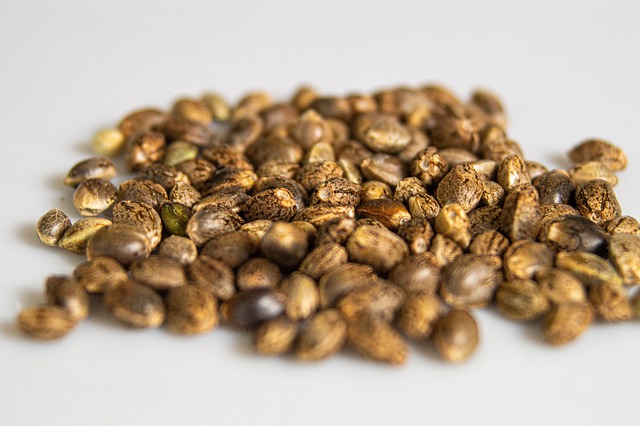
Delta-9-tetrahydrocannabinolic acid (THCA) and delta-9-tetrahydrocannabinol (THC) are two of the most prominent cannabinoids found in cannabis plants. While THC is well-known for its psychoactive effects, THCA exists in raw cannabis or in products that have not been exposed to heat or light, which converts it into THC. The nuances between these compounds are significant, especially when considering the legal landscape of their use. In Idaho, for instance, the legality of cannabis-derived products is a complex issue, with THC being fully prohibited, but hemp-derived CBD containing less than 0.3% THC being allowed under certain conditions. It’s crucial for consumers to understand that THCA, while it may convert into THC upon decarboxylation, is non-psychoactive and interacts with the body’s endocannabinoid system differently than THC. This distinction can influence its effects and potential therapeutic applications, which are being studied for conditions like inflammation and nausea.
Furthermore, the effects of THCA are distinct from those of THC, with some preliminary studies suggesting that THCA may offer neuroprotective and anti-inflammatory properties. As research continues to evolve, so does the legal status of these compounds. For example, in states where medical marijuana is legal, THCA is often sought after for its potential benefits without the psychoactive effects associated with THC. In the context of Idaho’s current laws, understanding the differences between THCA and THC is essential for anyone considering cannabis-related products, as the legal status of these compounds can be confusing and subject to change. It’s important for consumers to stay informed about the evolving regulations surrounding cannabinoids to navigate this landscape responsibly.
Idaho’s evolving legal landscape now includes THCA flower, a non-psychoactive cannabinoid that’s garnering attention for its potential wellness properties. This article has delved into the emergence of THCA within Idaho’s regulations, its distinct nature compared to other cannabinoids like THC, and the scientific research on its benefits. While THCA flower is legally available in Idaho under certain conditions, it’s crucial for consumers to understand its characteristics and effects. As legal clarity continues to evolve around THCA products, the emphasis remains on responsible use within the confines of state law. Users are encouraged to explore the potential advantages of THCA flower while adhering to the regulations that govern its consumption. With ongoing research and a clearer understanding of this cannabinoid, Idaho’s approach to THCA will likely continue to adapt.
